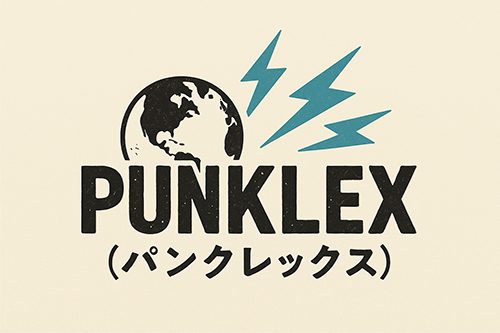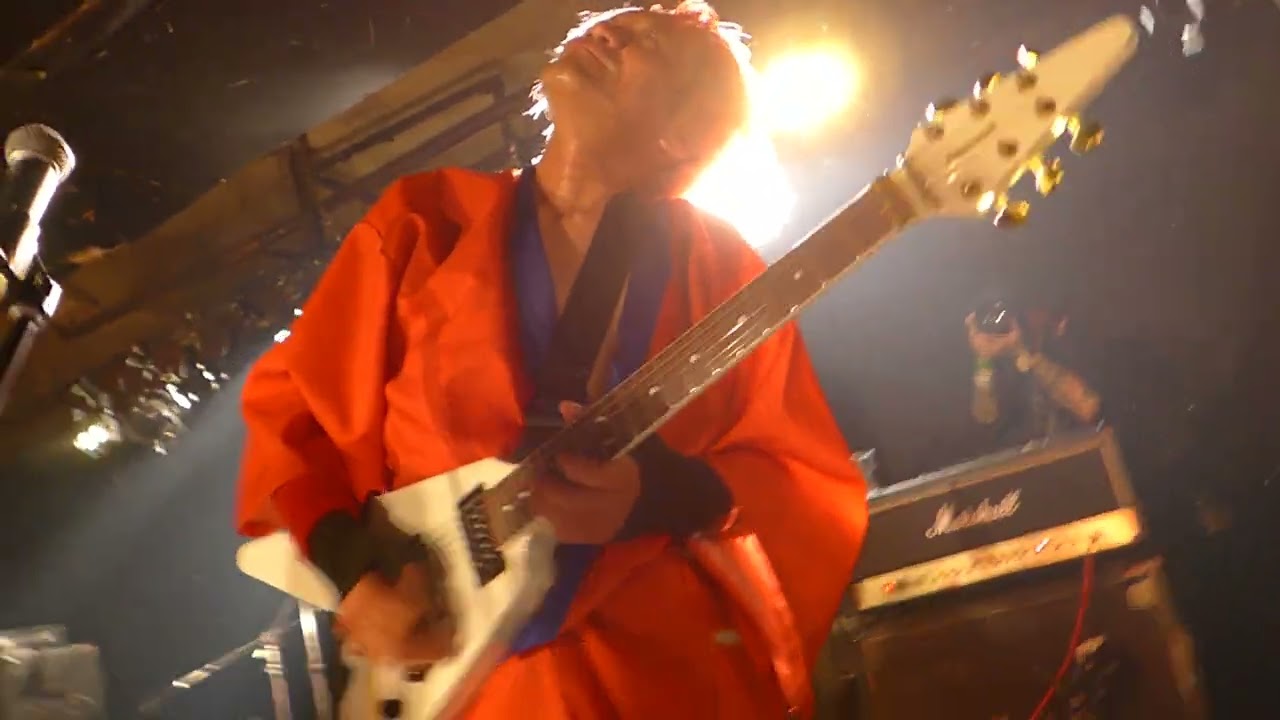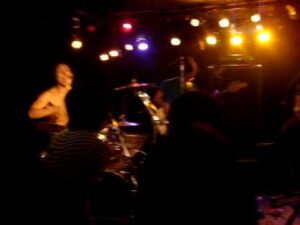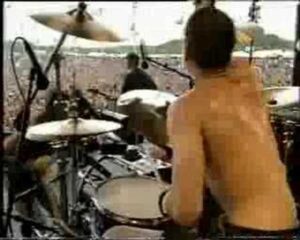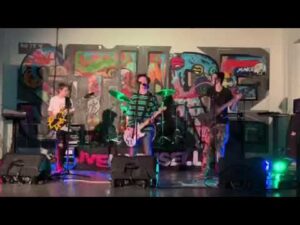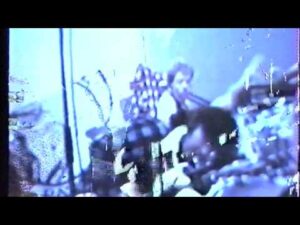Formation & Members
AKAI (惡AI) emerged from the vibrant underground punk scene of Tokyo in the early 1990s, a time when the city was brimming with musical rebellion and artistic experimentation. The band was formed in 1993 by four friends who shared a passion for the raw energy and ethos of punk rock. The original lineup consisted of Hiroshi Tanaka on vocals, Kenji Fujimoto on guitar, Yuki Nakamura on bass, and Takashi Ito on drums. Each member brought their unique flair to the group, creating a powerful synergy that would define AKAI’s sound.
Hiroshi, known for his ferocious stage presence and distinct vocal style, quickly became the face of the band. Kenji’s guitar work was characterized by fast, aggressive riffs that drew inspiration from both Western punk influences and traditional Japanese music. Yuki’s bass lines provided a solid backbone, while Takashi’s drumming was relentless and precise, driving the band’s explosive live performances.
Musical Style & Characteristics
AKAI’s music is a fusion of classic punk rock with elements of hardcore, thrash, and traditional Japanese sounds. Their songs often feature rapid tempos, shouted vocals, and themes of social and political unrest. The band’s lyrics, primarily written by Hiroshi, are delivered in a mix of Japanese and English, emphasizing themes of alienation, resistance, and identity.
What sets AKAI apart is their ability to blend intense energy with melodic elements, allowing them to appeal to a broad audience. Their sound is raw yet polished, with Kenji’s guitar work providing intricate layers over Yuki’s driving bass lines. Takashi’s drumming is both powerful and intricate, adding complexity to the band’s sound. AKAI’s live performances are legendary for their intensity and audience engagement, often featuring spontaneous crowd interactions and stage dives.
Key Works & Discography
AKAI’s discography is a testament to their evolution and enduring influence in the punk scene. Their debut album, “Red Riot,” released in 1995, was a critical success and established their reputation both in Japan and internationally. Tracks like “Tokyo Uprising” and “Rebel’s Anthem” showcased their gritty sound and powerful message.
The band’s sophomore effort, “Chains of Society,” came out in 1998 and further cemented their status as leaders of the punk movement. This album featured a more refined sound with tracks such as “Break the Silence” and “No More Lies,” which became anthems for disenchanted youth.
In 2003, AKAI released “Echoes of Rebellion,” a concept album that explored themes of cultural identity and the impact of globalization. This album marked a shift in their sound, incorporating more melodic elements and complex song structures.
Over the years, AKAI has also released several EPs and live albums, each capturing the raw energy and passion that defines their music. Their discography is a reflection of their growth as artists and their unwavering commitment to the punk ethos.
Influence on Other Bands/Scenes
AKAI has had a profound influence on the punk and hardcore scenes, both in Japan and worldwide. Their unique blend of Western punk and traditional Japanese elements has inspired countless bands to explore new musical territories. Many contemporary punk and hardcore bands cite AKAI as a major influence, drawn to their uncompromising sound and powerful messages.
Their impact is particularly significant in the Asian punk scene, where they have helped to pave the way for a new generation of musicians. AKAI’s success showed aspiring bands that it was possible to achieve international recognition while staying true to their roots. Their willingness to address social and political issues in their lyrics has also inspired other artists to use their music as a platform for change.
Breakups or Reunions
AKAI has experienced several lineup changes and brief hiatuses throughout their career, but they have managed to remain a cohesive unit. In 2005, following the release of “Echoes of Rebellion,” the band announced a temporary breakup, citing the need for personal time and creative reinvigoration. This hiatus lasted until 2008, when they reunited for a series of live shows and began working on new material.
Despite these challenges, AKAI has avoided the pitfalls that often lead to permanent disbandment. Their resilience and dedication to their craft have allowed them to continue making music and performing live, much to the delight of their dedicated fan base.
Current Reputation & Legacy
Today, AKAI is regarded as one of the most influential bands in the punk and hardcore genres. Their legacy is built on a foundation of powerful music, dynamic performances, and a steadfast commitment to the punk ethos. They continue to inspire new generations of musicians and fans, many of whom discover their music through the band’s extensive discography and live recordings.
AKAI’s influence extends beyond music, as they are often credited with helping to shape the cultural landscape of punk in Japan and beyond. Their willingness to tackle difficult social issues in their lyrics has earned them respect and admiration from both fans and peers. As they continue to tour and release new material, AKAI’s reputation as trailblazers in the punk scene remains firmly intact.
Conclusion
AKAI (惡AI) stands as a testament to the enduring power of punk rock. From their humble beginnings in Tokyo’s underground scene to their status as international icons, the band has consistently pushed boundaries and challenged the status quo. Their music, marked by its raw energy and thought-provoking lyrics, has resonated with fans across the globe and inspired countless artists.
As they continue to evolve and create, AKAI’s impact on the punk and hardcore genres remains undeniable. Their legacy is one of innovation, resilience, and a relentless pursuit of artistic expression, ensuring that their influence will be felt for many years to come.
